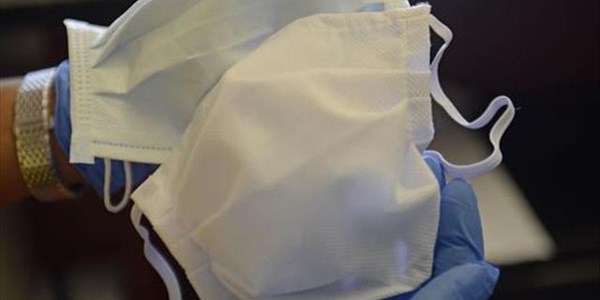International
Moroccans without masks could face jail time or a fine─── 12:36 Tue, 07 Apr 2020

The Moroccan government has announced that wearing medical masks in public and in the workplace will be compulsory as of Tuesday, and those who don’t adhere to this instruction could face jail time.
The online news publication Moroccan World News reports according to the Ministry of Interior, Economy and Industry, the decision is in line with the country's national efforts to contain the spread of the coronavirus. To date, Morocco has 1,120 active Covid-19 cases and 80 coronavirus-related deaths.
King Mohammed VI has instructed the government to provide protective masks to the public at an appropriate price.
Morocco plans to increase its daily mask production capacity to near 6 million next week from 3.3 million currently, said Industry Ministry spokesperson Taoufiq Moucharraf.
According to North Africa Post, authorities have mobilised several Moroccan manufacturers to supply the national market with protective masks.
The statement further noted that people who violate Morocco’s Covid-19 measures could face prison sentences ranging from one to three months or a fine of between 300 and 1,300 Moroccan dirham (R530 to R2,300).
Meanwhile, the World Health Organisation (WHO) has explained that wearing a medical mask "is one of the prevention measures to limit spread of certain respiratory diseases”.
“However," added WHO, "the use of a mask alone is insufficient to provide the adequate level of protection, and other equally relevant measures should be adopted. If masks are to be used, this measure must be combined with hand hygiene and other IPC (infection prevention and control) measures to prevent the human-to-human transmission of Covid-19.”
The WHO reiterated that the use of medical masks in the community may create a false sense of security, leading to the neglect of other essential measures, such as hand hygiene practices and physical distancing.
“This may lead to touching the face under the mask and under the eyes, resulting in unnecessary costs, and take masks away from those in health care who need them most, especially when masks are in short supply,” said WHO.
African News Agency (ANA)













